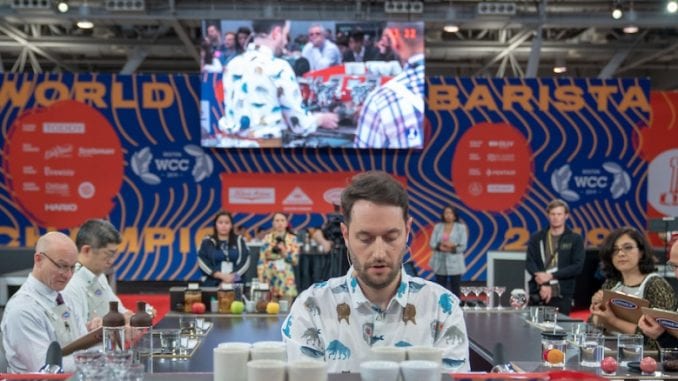
Mathieu Theis, the three-time Swiss barista champ, made the WBC finals for the second year in a row in 2019, this time with a routine meant to celebrate coffee farmers.
BY CHRIS RYAN
BARISTA MAGAZINE ONLINE
Photos by Lanny Huang for World Coffee Events
Mathieu Theis went into the 2019 World Barista Championship (WBC) in Boston ready to take risks. After placing third at the 2018 WBC, the three-time barista champion of Switzerland felt emboldened to express himself through his coffee choices. This came to life through his selection of supposedly lower-quality coffees that became extremely high-quality through inventive processing methods. Through this tactic, the routine contained a message of hope that processing methods are an effective way for farmers around the world to improve their coffee quality at a time when they’re facing more challenges than ever.
The risk—and the use of coffees not typically seen on the WBC stage—paid off for Mathieu, as he once again made the finals of the World Barista Championship, this time placing sixth. Mathieu constructed the routine with his competition team, which consists of Ben Put, who represented Canada in four WBCs, and Emi Fukahori, the 2018 World Brewers Cup champion and Mathieu’s partner in both life and their café/roastery, MAME, in Zurich. We talked to Mathieu about how he approached competition this year, how he collaborates with Emi, and whether he’ll compete again next year.
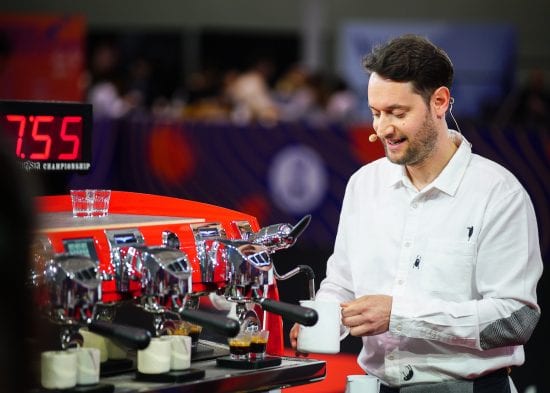
Can you describe how you approached this competition season? What was the theme of your routine, and what did you want to accomplish with it?
My approach this year was to continue the good work with Ben Put and Emi Fukahori. We wanted to have fun while showcasing coffees we love.
We quickly decided to focus on lower-quality coffee that can become outstanding with the right process. To showcase this, we chose three different coffees representing three different processes: Laurina from Daterra, Brazil, for the semi-carbonic maceration that showcases wine notes; the Mzungu Project from Uganda for the long fermentation with its intense cacao-nib notes perfect for the milk drink; and El Diamante from Costa Rica for its unmistakable note of cinnamon perfect for the signature drink.
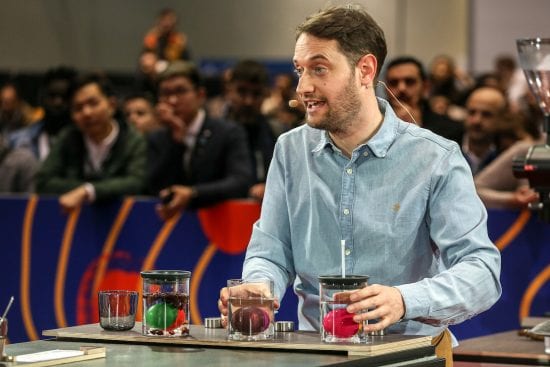
We are so happy with the results because it shows that with the right process, any farmer can bring their coffee to a world-class level.
Having made the finals last year, what did you learn from that experience that you brought to this year?
Making the finals last year gave me confidence in my coffee sensory abilities, which allowed me this year to take more risk with my coffee choices. To me, this 15-minute presentation in finals can bring recognition and financial rewards to farmers, so for me it’s an opportunity to make smaller or lesser-known farmers shine.
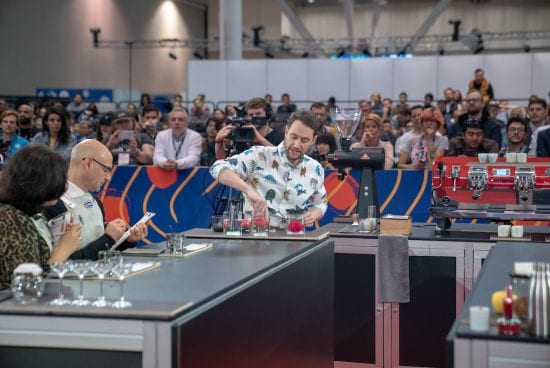
In this interview you did with us last year, you talked about how collaborating with Emi has been key to your success in competition. Can you talk about how you guys work together and how that makes your routines better?
Emi and I are from completely different cultural backgrounds, but are also very different when it comes to our customer service approaches. I’m very analytical, and she is much more empathic. Sometimes it causes misunderstandings and arguments, but often we complement each other. It’s not always easy, but with patience and listening we can bring out the best from our approaches.
She is also very tough with me, which is beneficial. Since we’ve known each other for a long time, she can be straightforward with me, which allows me to improve my routine every time very quickly.
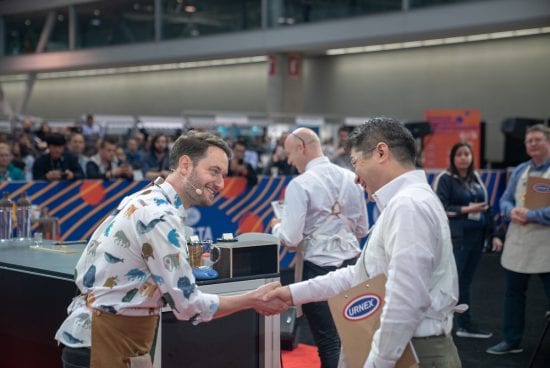
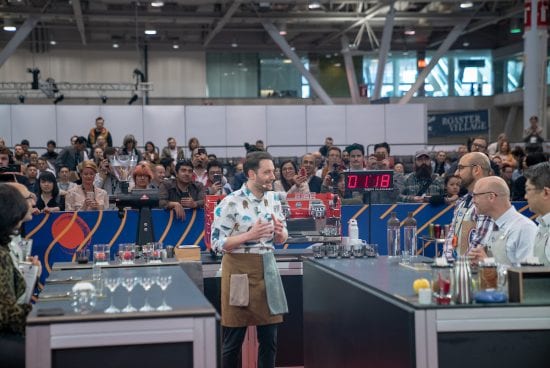
Can you describe your experience of competing at WBC 2019? How did it feel as the competition unfolded?
This year was very special; the spirit backstage was a bit lukewarm. You could feel that everybody was battling with their coffees. The water was difficult to work with and the weather in Boston made everybody less cheerful. On top of that, big surprises came very early with the non-qualification for semifinals of Sam Spillman from the U.S. and Tomoko Yamamoto from Japan. That made the semifinal even more tense. And there was another big surprise with Matthew Lewin from Australia not qualifying for the finals even though he was first in the first round. It gave the competition even more tension as we understood that anything can happen.
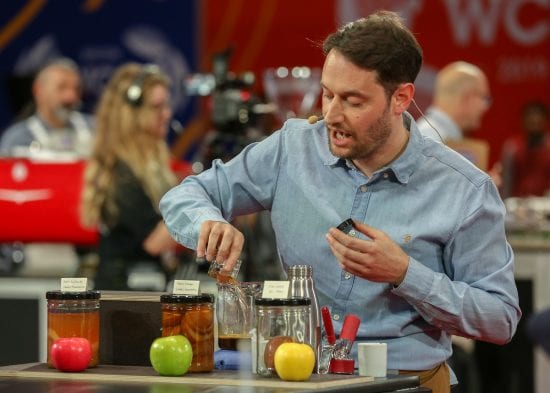
At the same time, the word quickly spread about Jooyeon Jeon’s presentation, with the magical idea to make judges sit and “cheers” at the end. I was really happy for her—such a beautiful routine.
Do you think you’ll compete again in the future?
Right after WBC this year, Emi and I started our roastery for MAME. We are super excited to start roasting and share very special coffees with our customers. Let’s see if I have time for competition next year.

